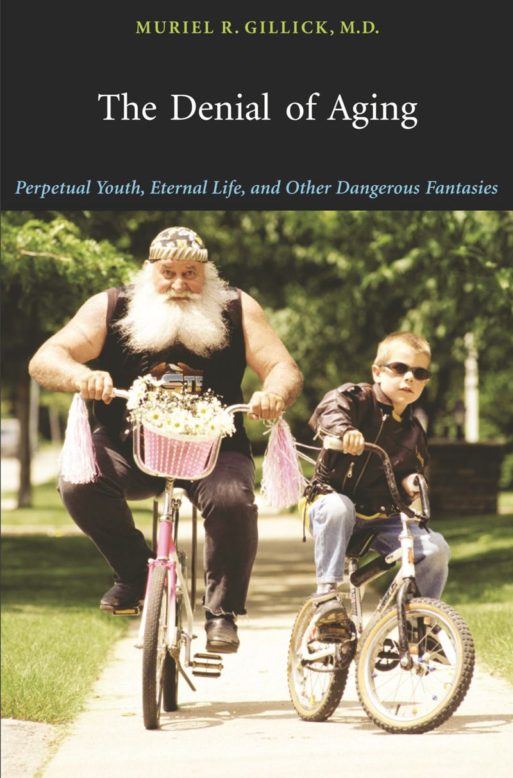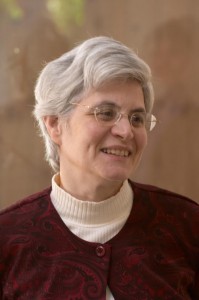 Is American medicine in denial of the need to reform end-of-life care for baby boomers? The Denial of Aging by Muriel R. Gillick, M.D. is an account of Gillick’s experiences with her elderly patients (often baby boomers) and their children. Although 60 may be the new 50 and 70 the new 60, Gillick says you can take this attitude so far; we can only rely on vitamins and exercise to push us through the indignities of old age for so long. American medicine is in denial with “physicians [being] taught that the goal of medicine is to stave off death.” Heroic measures are often taken to save patients, but the fact is that an elderly patient may not warrant the full arsenal of medical treatment; invasive treatments for diseases like cancer can often make the remaining time a patient has left more painful. It’s just one example of the Western obsession of a war on death and disease – one that is costing us billions of dollars.
Is American medicine in denial of the need to reform end-of-life care for baby boomers? The Denial of Aging by Muriel R. Gillick, M.D. is an account of Gillick’s experiences with her elderly patients (often baby boomers) and their children. Although 60 may be the new 50 and 70 the new 60, Gillick says you can take this attitude so far; we can only rely on vitamins and exercise to push us through the indignities of old age for so long. American medicine is in denial with “physicians [being] taught that the goal of medicine is to stave off death.” Heroic measures are often taken to save patients, but the fact is that an elderly patient may not warrant the full arsenal of medical treatment; invasive treatments for diseases like cancer can often make the remaining time a patient has left more painful. It’s just one example of the Western obsession of a war on death and disease – one that is costing us billions of dollars.
Rarely is a voice raised to consider stopping to screen for certain diseases at a certain age. Does it make sense to test and treat for slow growing prostate cancer in men after a certain age?
Even when rigorous and randomized double-blind studies are done, The Denial of Aging says many tests and procedures have been shown to be of little value. One of the problems is that those with insurance will often demand the “tried-and-true” tests and treatments because the patient doesn’t have to pay for them. Interestingly, when people are charged more than the small, accustomed co-pay, their interest in these tests drops dramatically. Take the high-cost of arthroscopic knee surgery for arthritis, for example, which is typically done for patients over 65: in a test of 165 patients, many were said to have felt no improvement. Many felt they simply had a “sham” surgery where nothing was actually done to the knee. It’s another testament to why “Evidence-based medicine is necessary.”
“Even when rigorous and randomized double-blind studies are done, The Denial of Aging says many tests and procedures have been shown to be of little value.”
Often a simple, home-based treatment of chronic diseases can prove more effective than hi-tech treatments. In the United States, “telephone calls made by a nurse to patients with congestive heart failure on a regular basis caused hospitalization rates and costs to plummet by 50%. It turns out most patients didn’t understand their disease and how to follow their drug treatment correctly. A little follow up by a professional went a long way in “guid[ing] patients through the frequent minor crises which, if not dealt with in a timely fashion, can result in major disease flares.” Then there is the treatment of the elderly in the final months or weeks of their life — when the cost of keeping someone alive becomes astronomic. Often, frail elders are subjected to “assaults of maximally aggressive medicine.”
Which treatments are futile, or inappropriate? What do you do if five or ten percent of the patients show positive results, but the rest simply have their agony prolonged or magnified? How far to go in treating people in the last months of their life is a dilemma with many shades of gray — something Gillick is well-aware of.
“Which treatments are futile, or inappropriate? What do you do if five or ten percent of the patients show positive results, but the rest simply have their agony prolonged or magnified?”
Inevitably, the subject of Medicare arises. Medicare is well structured for the vigorous elder, who suffers from an episodic disease that can be treated successfully by a brief hospital stay. However, Medicare is “inadequate for people who are frail or nearing the end of life,” because it is designed around “technology-intensive treatment” and institutional care. Typically, Medicare will treat a chronically ill, frail elder when they are in medical crisis, discharge them quickly to a rehab facility with different doctors and nurses and finally, send them home with limited or no follow through at home.
Next comes the nursing home industry, which has been unregulated for decades. Common practices have included the use of restraints or sedation to keep patients quiet, often leaving them in urine-soaked diapers and sitting motionless, only to develop pressure ulcers. The Federal Government set standards in 1987 to clean up the industry and monitor “the health and physical functioning of all nursing home residents” by stating that nursing homes must complete a “Minimum Data Set” (MDS) on each resident annually, with shorter quarterly updates and extensive re-evaluations. Although government regulation eliminated the most horrid abuses in nursing homes, the focus is on health and safety rather than quality of life. Nursing homes are more concerned with getting good ratings from the various state and federal agencies – and often at the expense of a patient’s quality of life.
Underpaid and overworked staff doesn’t help matters. Often, procedures are designed to make the job easier on the harried staff, regardless of how inconvenient it is for the patients. Dr. Gillick says that government regulation, which drives the way nursing homes are organized, “will need a major shift in focus from strictly quality of care (defined as health and safety) to quality of life.” We must redesigning the way nursing homes function and find money to fund their inevitable expansion – especially because the number of baby boomers living in them is expected to double in the next 30 years.
“We must redesigning the way nursing homes function and find money to fund their inevitable expansion – especially because the number of baby boomers living in them is expected to double in the next 30 years.”
If you want to see what the nursing home industry looked like before the government stepped in to put an end to the unregulated abuses, look at today’s Assisted Living industry, which is virtually unregulated. The vision of boomers paying good money for assisted living accommodations had corporations rushing to build (and overbuild) assisted living facilities. However, the necessary training and staffing was often overlooked (by both owners and government regulators). When the difficulties of running these facilities became apparent, bankruptcies and abandonment of this “gold mine” of well-heeled seniors unfolded.
Boomers have redefined almost all the social institutions and habits as they encountered them – just look at marriage, childbirth and rearing, not to mention sex drugs and rock and roll. Death and how it is dealt with is currently changing as boomers deal with their aging parents and their own mortality. As boomers enter this aspect of life, changes will have to happen because there will be so many requiring care — and they will probably want things done differently. Making changes will require the political will to redefine how elder care is organized. And this will be based on redefining what it is to get old.
Related Articles:

 “The Denial of Aging” by Muriel R. Gillick
“The Denial of Aging” by Muriel R. Gillick



 “Comeback” by Prince
“Comeback” by Prince

 The Other Death in the Family
The Other Death in the Family














